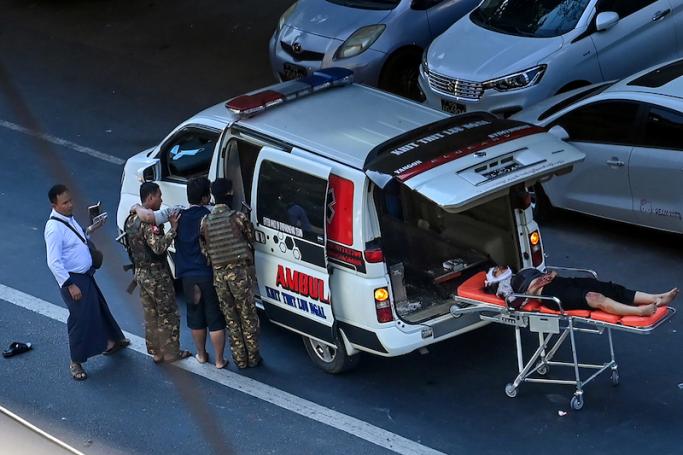UNESCO calls on the world to “celebrate” World Press Freedom Day on 3 May but for Burmese journalists the day will be more like a sad wake.
Myanmar independent media are under attack by the Myanmar military junta, a campaign that has been underway since the 1 February 2021 military coup plunged the country into crisis and junta soldiers and police scrambled to arrest journalists and trash their media offices.
The brutality and fear has put Myanmar close to the bottom of world press freedom rankings for 2023, placing a pall of tension over the lives of journalists and media people in the country who attempt to report on the crisis, and those journalists who have been jailed for trying to do their job.
UNESCO’s global theme this year for World Press Freedom Day is “Shaping A Future of Rights: Freedom of Expression As A Driver for All Other Human Rights” – a reminder of how crucial press freedom is today. This theme is highlighted as World Press Freedom Day marks its 30th anniversary.
As UNESCO notes, this year’s commemoration provides an occasion for all press freedom stakeholders to reaffirm their commitment to freedom of expression to including press freedom, right to access information and safety of journalists and media workers, all issues that resonate in war-and-crisis-torn Myanmar.
The international community faces multiple crises; conflicts and violence, persistent socio-economic inequalities driving migration, environmental crises and challenges to the health and wellbeing of people all around the world, while disinformation and misinformation online and offline proliferate with serious impact on the institutions underpinning democracy, the rule of law and human rights, UNESCO says.
Polarised political and societal discourse; erosion of trust; impositions of states of emergency and internet shutdowns; crackdown on critical voices and independent media; news desertification due to the collapse of traditional media business models; and tackling hate speech and online harms that disregard international standards, pose new threats to freedom of expression, and the fundamental role of human rights.
It is exactly to counter these critical situations and threats, that press freedom, safety of journalists and access to information take centre stage this year. The right to freedom of expression, enshrined
in Article 19 of the Universal Declaration of Human Rights, is a prerequisite and a driver to the enjoyment of all other human rights.
This year’s Special 30th anniversary celebration of World Press Freedom Day is therefore a call to recentre press freedom, as well as independent, pluralistic and diverse media, as necessary key to the enjoyment of all other human rights. This anniversary coincides with the 30th anniversary of the Vienna Conference and its Declaration and Programme of Action on Human Rights, which established important institutions safeguarding human rights, and with the 75th anniversary of the Universal Declaration of Human Rights. On this occasion, the global community will debate and set the agenda for both the development of human rights and how to protect them in an everchanging world, and World Press Freedom Day will serve as an opportunity to put a strong focus on freedom of expression within the overall human rights agenda.
This is all well and good. But the concept of “freedom to report” is in a bad way in Myanmar and many other countries around the world, a situation arguably worse that many people actually perceive.
Freedom of expression is vital, says UNESCO, but Myanmar and many other countries are proving tough places to operate for journalists seeking to inform the public about what is really going on in the world – and also for members of the public seeking news and insight through their mobile phones.
The badlands for journalists are both obvious and also less clear. Operating in countries like China, Russia, North Korea is tough if freedom of expression is pursued. But even the media in so-called free countries – such as the USA, UK and France – exhibit signs of censorship, politicization and warped editorial lines that indicate what they publish is not always free, fair and objective. Media wars are being played out publicly as we write.
At this 30-year juncture, UNESCO says it is an opportune time to address the future of human rights and shape how the challenges to freedom of expression will be met in the digital ecosystem and rapidly evolving information environment.
If one country needs a spotlight thrown on it at this time then it is Myanmar and the hard work of independent media. Brave souls – both male and female – are diligently working under threat of arrest and imprisonment to show people in Myanmar and around the world what is happening under the Myanmar junta’s dark and brutal rule.
These fighters for freedom of expression need our support.












